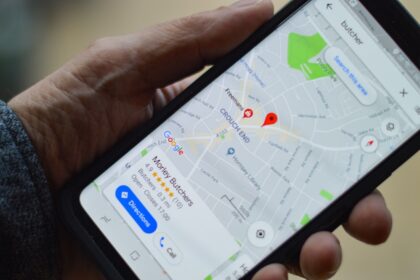10 of the most common questions people ask about SEO
Many people find SEO difficult and confusing, so it’s no surprise that I often get asked questions about how it works.
The truth is that SEO is much simpler and more accessible than most people realise. You just need someone to explain how it works in everyday terms, and show you what you need to do.
To help you feel more knowledgable and confident about SEO, in this article, I have compiled 10 of the most common questions I – and other SEO experts – get asked about it. If you would like further guidance, I also share how our online course, Easy SEO can help.
So, what are the most common SEO questions and their answers? Read on to find out!
1) Why do you need SEO?
If you have a business website, you need SEO. Why? Because without it, how will potential customers and clients find it? And if potential customers and clients can’t find it, what is the point of investing time and money in your website?
Yes, you can always help people find your website through advertising and social media. But advertising requires a budget. And as soon as you stop paying for ads, your web traffic stops. Social media, also requires continual effort, and possibly cost.
Once you start using SEO, you only need to spend a small amount of time each month on it. And once your pages start to rank on Google, you’ll get continual traffic without needing to pay money or expend very much effort. This is especially true for SEO for higher education, where optimized content can consistently draw in students searching for programs and resources online.
The data also shows that SEO is an important investment for business:
- SEO drives 1,000% more traffic than organic social media
- 97% of people search online to find a local business
- 78% of local searches on mobile result in an offline purchase
- 68% of online experiences begin with a search engine
- 53.3% of all website traffic comes from organic search
2) How long does it take to see results from SEO?
As a rule, SEO is a long-term strategy. Usually, it will take around three to six months before you’ll start seeing significant results. This will obviously depend on a few factors, including the competitiveness of your industry/keywords, the quality of your SEO strategy, and the consistency of your efforts.
That said, it IS possible to see results quickly – as I have proved many times! My recommendation is to take a two-pronged approach to SEO. Invest the time in building a solid, long-term SEO strategy. But also, secure some early quick wins by creating pages specifically designed to rank for relevant long tail keywords.
It’s this strategy that enabled Mandy Dineley, Sally Smy and Hester Van Lien to all rank on page one of Google very quickly. And that helped travel agent Nicky see results like this (the red arrow shows when she joined our Easy SEO course):

Everything they all did is easily replicable with the help you get inside Easy SEO. I can’t guarantee that I can get you on the first page of Google (no one can!), but I can certainly show you exactly what they all did, and give you advice on what might work for you too.
3) What is involved in SEO?
The main components of SEO are:
- Keyword research
- On-page SEO (this includes meta tags, content optimisation, and internal linking)
- Off-page SEO (like backlinks)
- Technical SEO (site speed and mobile-friendliness)
- Local SEO
All these are covered in Easy SEO.
4) How do you choose the right keywords for your business?
There are a number of ways you can find the keywords for your business. The first thing you need to decide is what type of keywords you want to try to rank for (for example, head keywords or long tail).
Once you have decided, there are a number of tools you can use for research, as well as creative ways you can get inside the minds of the people you want to visit your website, and do some detective work on what terms they are currently using.
Keywords are such an important part of SEO that we devote an entire module to them in Easy SEO.
5) How important is content for SEO?
Creating regular, valuable content is essential for SEO. High-quality, relevant, and regularly updated content will help you to attract visitors to your website and provide value, which can improve your search rankings.
The most common types of content used for SEO includes blog posts, articles, infographics and videos. It is important to optimise your content – to plan it around a keyword and ensure you take all the necessary measures for Google to rank it.
6) What is content optimisation?
Content optimisation is the process of making sure your content is written, structured, and formatted so that it is appealing to both search engines and readers.
It’s an essential part of SEO because Google prefers to rank content that is relevant and easy to read. It monitors how people respond to content (for example, how long they spend on a page and what they do afterwards) and uses that information as part of its ranking process.
Put simply, the better your content is optimised for SEO, the higher it will rank. In Easy SEO we devote an entire module to writing for SEO. It covers:
- How to plan blogs
- How to write for readability
- How to write meta descriptions
- How to write a blog
- How to use topic clusters and pillar pages
- How to build a topic cluster
- How to keep your content fresh
7) What is local SEO and how can it benefit your business?
Local SEO involves optimising your online presence for a specific geographical location, so you can attract customers in that local area.
You may assume that local SEO doesn’t apply to you because you can work for customers or clients anywhere. But there is still huge value in building your local ranking.
Why? Because when we start searching for a person or business, we usually start from our location. When I was a freelance copywriter, I worked for clients all over the world, but still built a local SEO presence. Many of the clients who approached me for work, found me by searching ‘copywriter sussex’ or similar local terms, even though they could have worked with a copywriter from anywhere. Local SEO was worth a LOT of money to me!
I have since used this strategy to help other freelancers and small businesses – many of whom could also work for clients further afield – rank on page one of Google for local searches.
8) Why are backlinks important?
Backlinks from relevant, reputable websites act as ‘votes of confidence’ for your website. If another site links to you, it tells Google that they, in effect, are recommending you, and it helps you to increase your Domain Authority and ranking.
But not all backlinks are equal. The quality of your backlinks is more important than quantity. Google will place more weight on a backlink from a high authority website, and websites that are relevant to what you do. So, for example, if you are a chef, a backlink from the Michelin Guide is worth more than a backlink from your local hairdresser.
How can you get backlinks? This is such an important part of SEO that we cover it in a whole module of Easy SEO.
9) What are the most common SEO mistakes to avoid?
Common SEO mistakes include keyword stuffing, using duplicate content, your site not being mobile-friendly, ignoring local SEO, and sites that take too long to load.
It’s also important to avoid the temptation of black hat SEO strategies – these are short cuts that ‘cheat’ the system. You may get an advantage for a while, but Google will eventually find the short cut and may well penalise websites that have used it.
We cover black hat strategies in Easy SEO, and teach you how to use ethical SEO that avoids common mistakes.
10) Should you hire an SEO agency or do it yourself?
If you have the budget, it is absolutely worth hiring an SEO agency or freelance SEO consultant. But many small businesses and freelancers can’t afford to outsource SEO.
That’s why I created Easy SEO. I have had to learn and use SEO on our own website, and I wanted to help other businesses do their own SEO too.
With the right knowledge, SEO is easier and more doable than most people think. My aim is to help you feel confident about using SEO yourself, and enable you to rank on Google for the right search terms.
Need more help with SEO?
You’ll find plenty of helpful SEO content on our site if you’d like to learn more. Just click here to see all SEO articles.
We also take you through building a successful SEO strategy step by step in our online course Easy SEO. Easy SEO is designed for complete beginners to SEO, as well as small businesses and freelancers who don’t feel confident using it and aren’t yet seeing the results they want.
Hannah Martin is the founder of Talented Ladies Club, and an SEO expert. She teaches you how to plan your own powerful SEO strategy in the online course Easy SEO.










